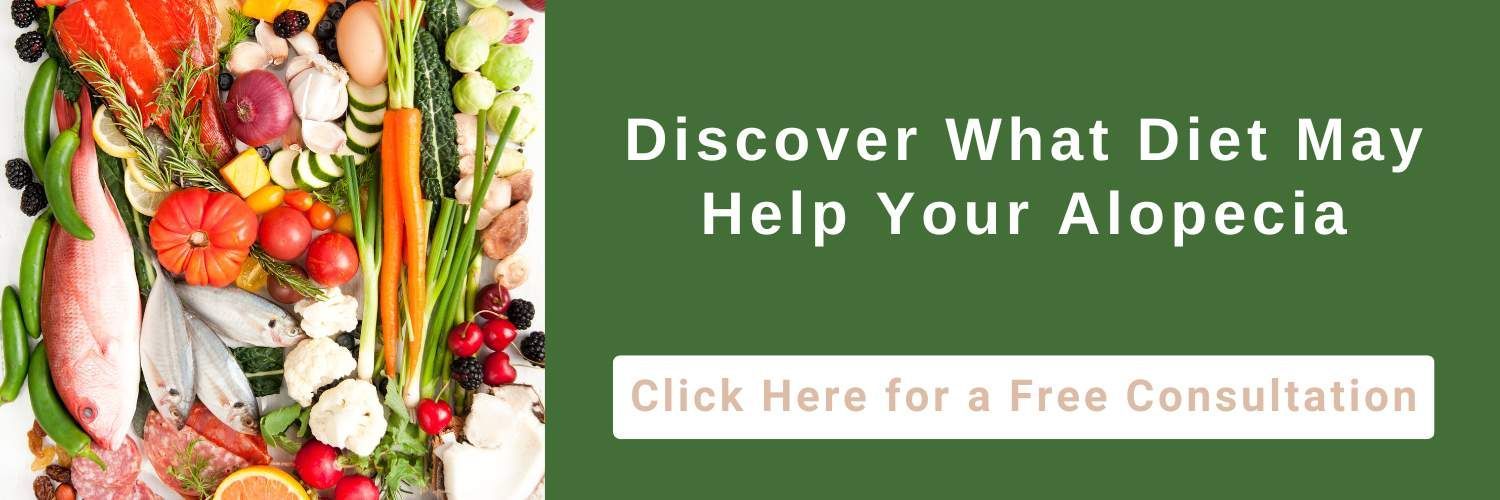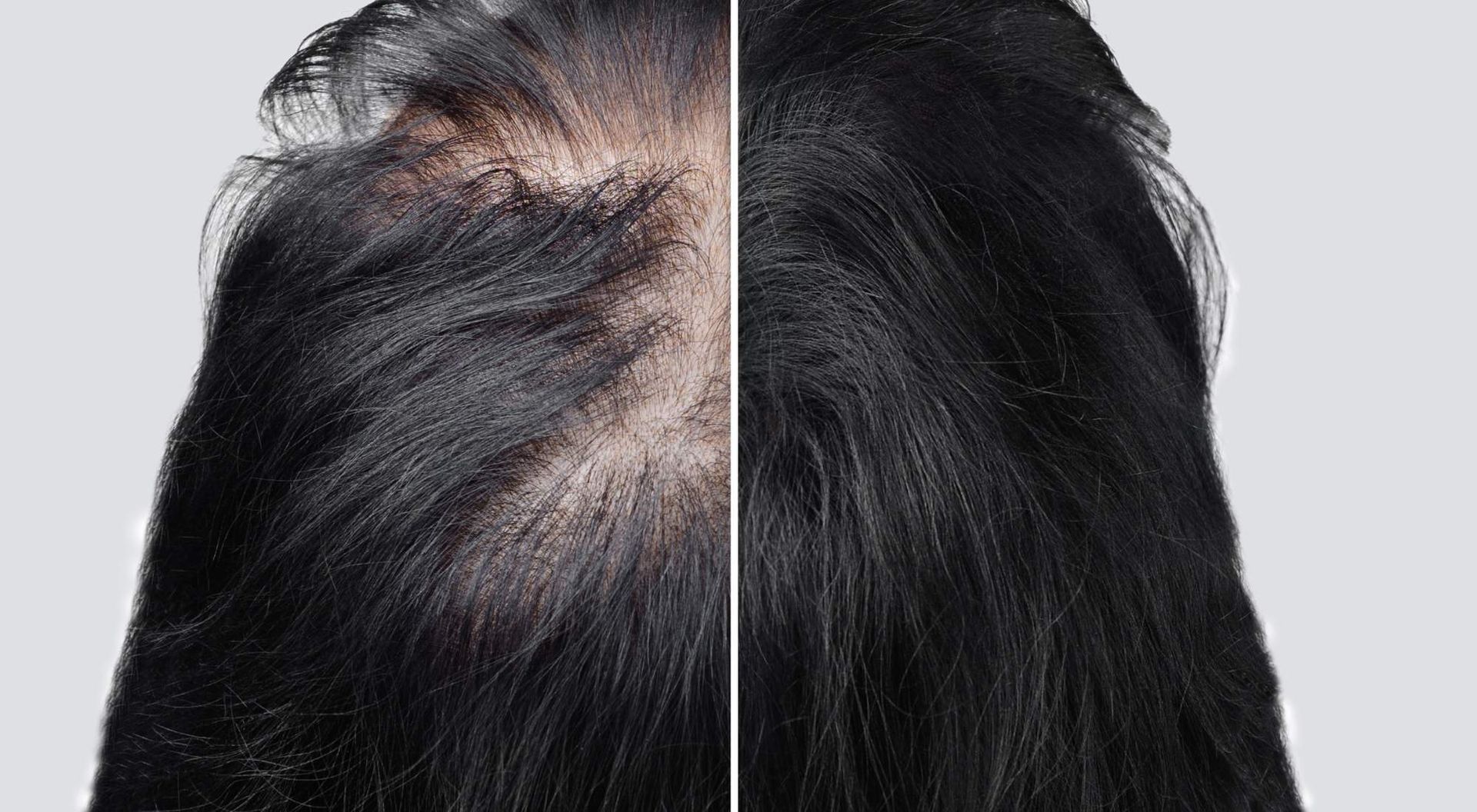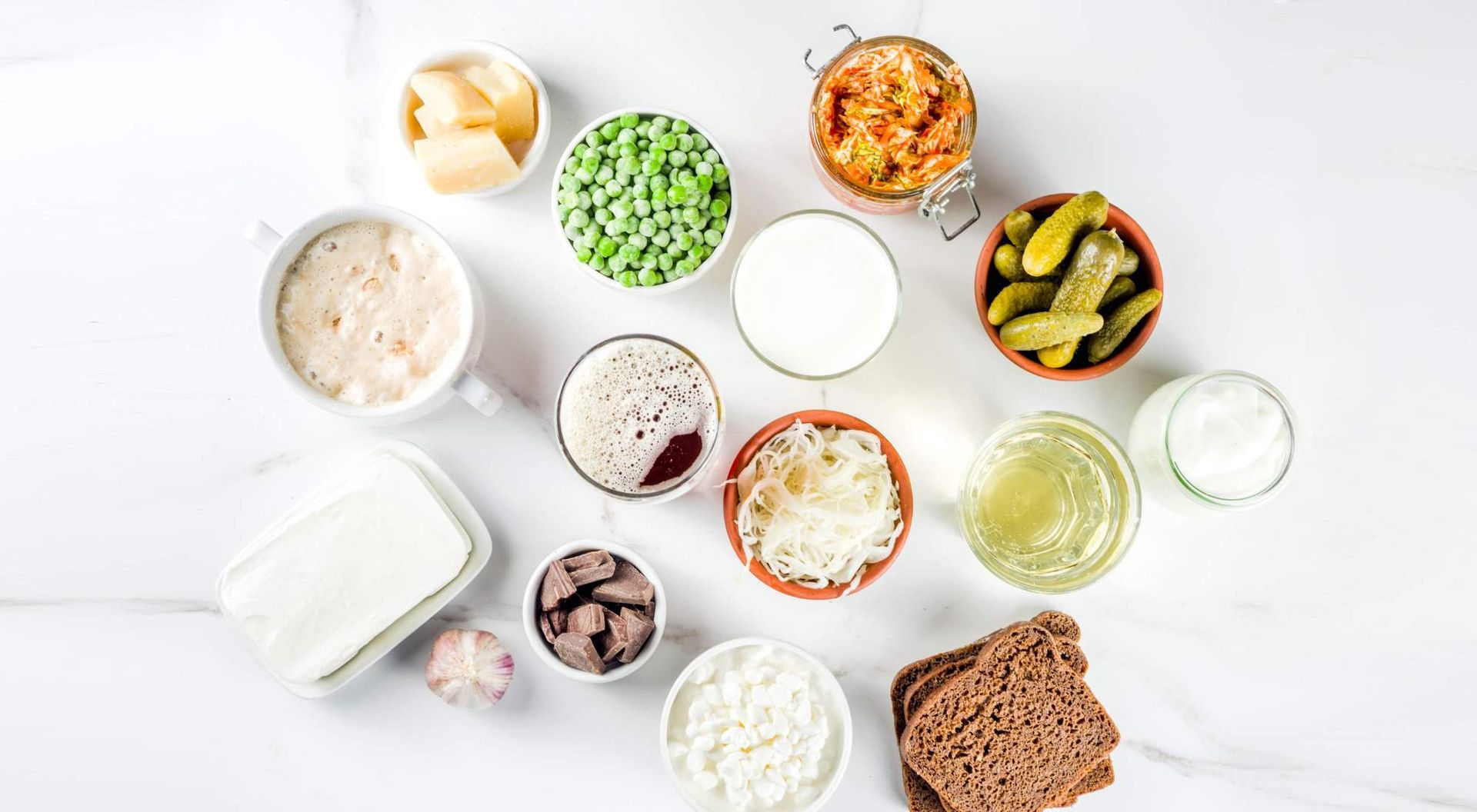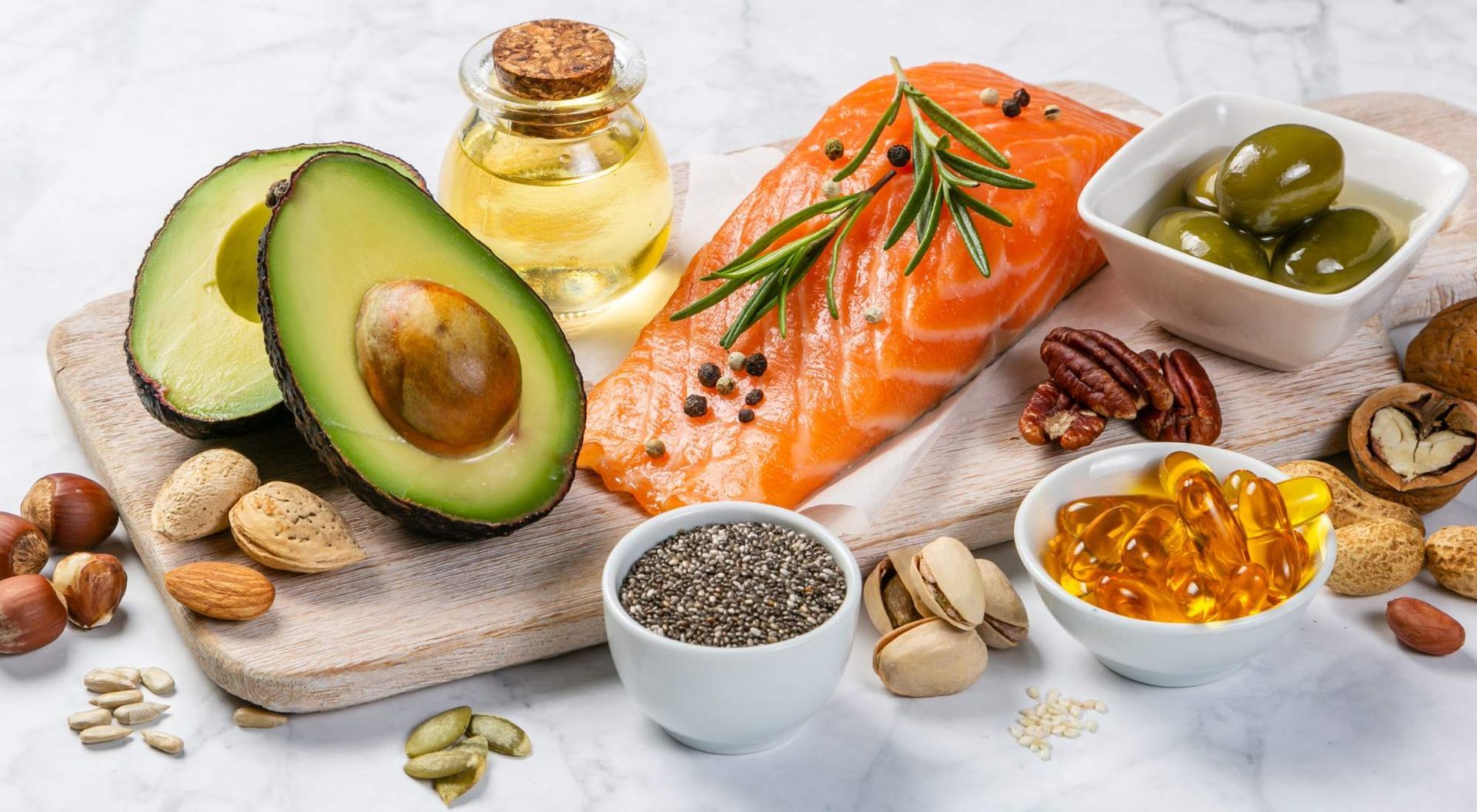The Best Alopecia Diet: Nutrition Tips To Help Combat Hair Loss
"The content below is not intended to be a substitute for professional medical advice, diagnosis, or treatment. Always seek the advice of your physician or other qualified health provider with any questions you may have regarding a medical condition."
Alopecia can be an embarrassing condition to deal with. Thinning hair, patchiness, bald spots, and even total hair loss do not leave you feeling your best and ready to face the world.
Some women suffering from alopecia even report getting anxious and depressed because of the problems it causes with their hair.
But what if we told you that it’s possible to slow and even reverse this condition just by eating the right foods and eliminating others?
We’ll share our recommended diet for alopecia, why certain foods are helpful in preventing hair loss and restoring growth, and which foods are best to cut out of your diet to avoid worsening your symptoms.
Table of Contents
What Nutrients Are Helpful in an Alopecia Diet Plan?
Since alopecia areata is an autoimmune disease, what you eat can make a big difference in its severity. Studies have shown that the right diet and supplements can reverse and even prevent the condition.
Depending on what stage of alopecia you’re currently experiencing, certain nutrients may prevent or stop hair loss and even restore its growth.
Some nutrients you may want to include in your diet for alopecia include:
- Biotin — Helps with hair growth and restoring volume
- Turmeric — Can reduce the inflammation that exacerbates the condition; combine turmeric with black pepper for better absorption
- Vitamin C — Strengthens capillaries supplying blood to the hair shaft
- Thiamine — Prevents nerve damage, which in turn helps hair follicles grow
- Zinc — Keeps oil glands around hair follicles working and encourages tissue growth and repair
- Vitamin D — Stimulates hair follicles (old and new)
- Iron — Boosts circulation, which carries oxygen to your hair’s roots and helps it grow
- Antioxidants — Reduce inflammation and encourage hair growth by boosting blood and nutrient supplies to the scalp
If you have alopecia, it is important to speak with a nutritionist to create a diet plan that meets your specific needs. Through
Nutrition Response Testing, Dr. Sergi can help establish a custom plan to address your specific nutrient deficiencies.
10 Types of Food To Include in Your Alopecia Diet
While you may be able to get many of the nutrients we listed above in supplement form, incorporating them via whole foods will probably give you even better results.
Here are our recommendations of ten foods you’ll want on your
alopecia diet plan.
#1: Fruits and Vegetables
Increasing your fruit and vegetable intake may seem like a no-brainer.
Bright-colored fruits and veggies are full of antioxidants, which we told you can reduce inflammation and increase blood flow to the scalp. Some of these foods you can incorporate into your diet for alopecia include:
- Apples
- Strawberries
- Pineapple
- Apricots
- Blueberries
- Raspberries
- Cherries
- Cauliflower
- Green cabbage
Some alopecia experts believe green, leafy vegetables like spinach, broccoli, and kale are especially helpful when dealing with hair loss. They can boost your immunity and are rich in vitamin C, which promotes hair health.
For a daily mega-dose of fruits and veggies, try having a smoothie for breakfast or a snack each day. The combinations are endless, so you’re sure to find some you’ll enjoy.
#2: Healthy Fats
Healthy fats are helpful in an alopecia diet because they reduce the amount of inflammation in your body. People with alopecia also tend to have dry scalps, and adding good fats to your daily meals can combat this.
Some examples of foods rich in healthy fats are:
- Canola oil
- Coconut oil
- Olive oil
- Avocado oil
- Flax seeds
- Hemp seeds
- Olives
- Avocados
Cooking with these oils is a good way to sneak in those healthy fats. You can also try adding flax seeds to your yogurt or oatmeal and hemp hearts to your salads.
#3: Protein-Rich Foods
Since hair is mostly made of protein, foods like …
- Eggs
- Chicken
- Red meat
- Liver
- Beans; and
- Sprouts
… can help foster regrowth.
#4: Fish
Fish are rich in Omega-3 fatty acids, which are known to reduce environmental stress on the hair as well as being beneficial to many other bodily systems. You might want to try:
- Salmon
- Mackerel
- Sardines
- Herring
- Cod
- Trout; and
- Canned tuna
Try to get wild-caught fish for the most health benefits.
And if you just aren’t into the taste of fatty fish, you can always incorporate a fish oil supplement into your daily routine.
#5: Nuts
Nuts such as …
- Almonds
- Hazelnuts
- Walnuts
- Macadamia nuts; and
- Pecans
… are also full of Omega-3s and are great for snacking between meals.
Nuts can be incorporated into meals by adding them to salads or even as a topping for some pasta dishes and casseroles.
#6: Onions
Onions are high in antioxidants for inflammation, specifically when eaten raw. Try adding them to sandwiches and salads whenever you can. Some people even juice them for a concentrated shot of helpful inflammation-fighting power.
If you don’t like the taste of raw onions, there’s an age-old remedy of rubbing the scalp with onion and garlic juice to help strengthen follicles and prevent hair loss. Just make sure you have a good shampoo to wash out the smell afterward!
#7: Bone Broth
Bone broth is full of nutrients such as …
- Calcium
- Collagen
- Gelatin
- Glycine
- Magnesium; and
- Phosphorus
… that fight inflammation and nourish your hair.
Many people find that sipping on bone broth between meals keeps them satiated and helps them avoid snacking.
#8: Probiotics
Probiotics can not only reduce inflammation — are you seeing a pattern here? — but they’re also known to improve the microbiome of the skin and scalp, which can prevent hair loss from worsening and even reverse it in some cases.
You can purchase probiotic supplements, but they’re also found naturally in foods like:
- Yogurt
- Sauerkraut
- Tempeh
- Kefir
- Kombucha
- Kimchi
- Miso
- Buttermilk
- Pickles
- Natto; and
- Some cheeses, including Gouda, mozzarella, and cottage cheese
#9: High-Fiber Foods
Fiber helps reduce the levels of a protein in the blood associated with inflammation. Some fiber-rich foods you can try include …
- Oatmeal
- Brown rice; and
- Quinoa
… as well as the fruits and vegetables we discussed previously.
#10: Soy Products
Soybeans are rich in spermidine, which can speed hair growth. We already mentioned the fermented soybean products miso, tempeh, and natto in our section about probiotics, but there are also other soy-based foods like:
- Tofu
- Soy milk
- Edamame
- Textured soy protein; and
- Soy nuts
Types of Food To Avoid if You Have Alopecia
It’s not enough to just include helpful foods into your alopecia diet — there are also things you should cut back on or eliminate altogether for the best results.
Caffeine
Some caffeine is okay, and it’s actually an effective
hair growth stimulant when used topically. But ingesting too much coffee each day can
prevent your hair from growing due to tannins that limit your body’s absorption of essential elements.
Sugar
Again, moderation is key. We’re not saying you can never have a sweet treat, but
research shows that a high sugar intake can cause insulin resistance.
And women with high insulin resistance are at a greater risk of hair loss caused by alopecia.
Dairy Products
Certain forms of whey protein found in milk and other dairy products can be irritants to the immune system, which can
worsen alopecia symptoms.
Saturated Fats
Healthy fats are great, but not all oils are the same. Saturated fats — the kind that solidify at room temperature — are
pro-inflammatory and have been known to contribute to hair loss.
Reduce these unhealthy fats in your diet by avoiding processed and fried foods.
Fish High in Mercury
We extolled the benefits of fish with Omega-3 fatty acids earlier, but beware of eating fish with high mercury content. Increased levels of mercury have been known to cause hair loss.
Some types of fish that may contain high levels of mercury are:
- Bluefish
- Grouper
- Shark
- Ray
- Swordfish
- Orange roughy
- Barramundi
- Tilefish
- Chilean sea bass
- Croaker; and
- Perch
Alcohol
The occasional alcohol drink is not going to harm your hair growth. So if you want to enjoy an occasional glass of wine or two, don’t fret.
However, drinking alcohol excessively can casse nutrient deficiencies that can lead to hair loss.
Some nutrient deficiencies that excessive drinking can cause are:
- Vitamin B-12
- Folic acid
- Iron
These are key nutrients that your body needs to grow your hair and maintain other important body functions such as:
- Brain function
- Sleep
- Nail growth
Studies have even shown that regular drinking can increase your immunological risk for alopecia areata in the first place.
Sugary Drinks
Sugary, carbonated beverages can cause sugar levels in the blood to rise, which can impair blood flow and affect the amount of nutrients that reach your hair follicles. When your hair follicles do not receive proper nutrients, you can end up with hair loss.
One jarring
study
showed that even consuming just one soda per day can increase your risk for hair loss.
The Best Way to Eliminate Inflammatory Foods From Your Diet
To find out which foods your body is most sensitive to, you can try an elimination diet. This means you will cut out all foods you suspect may be causing problems, and then slowly reintroduce them one at a time.
If you start eating a particular food again and see your alopecia symptoms worsen, it will benefit you to remove it from your diet for good.
Keeping a
food diary during this time will help you identify which foods are causing you the most trouble and which ones can still be enjoyed in moderation.
HealthierU Can Help Your Alopecia Through Nutritional Response Testing
At HealthierU, we strongly believe that the foods you eat — and don’t eat — can make a huge difference in your health and medical conditions. Our Nutrition Response Testing program is a great way to find out which foods will help or worsen your alopecia and any other issues you may face.
We specialize in women’s health and wellness and would love to offer you lifestyle guidance and nutrition support on your road to a healthier you.
Contact us today to schedule a consultation with the goal of getting your health
and
hair back.






